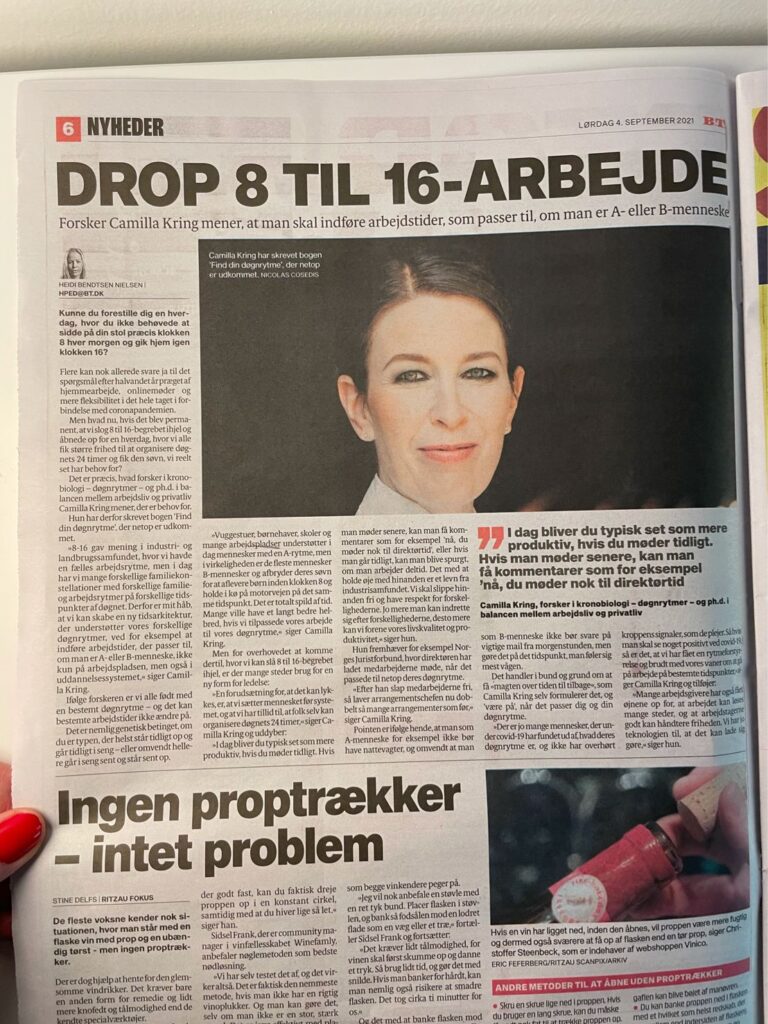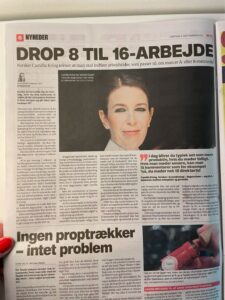You are born with a circadian rhythm. You are genetically predisposed to be morning fresh or evening fresh. By arranging workplaces according to employees’ circadian rhythms and different family rhythms, employees can have more energy and better health, and workplaces can achieve higher productivity.
The cockroaches of the agricultural society and the rhythmic assembly lines of the industrial society have, through generations and centuries, imprinted their rhythms on our way of thinking. They dictate a lifestyle where “one size fits all”. “Working 9-5” by Dolly Parton is the soundtrack to the work rhythm of the industrial society. A rhythm that takes place in well-defined periods of time – preferably at least eight hours every day from Monday to Friday. The 9-to-6 rhythm and the collective work — where everyone had the same working hours, fixed place of work and the same work rhythm — was the perfect way to optimize the industrial work. The role of management was to maintain this same rhythm and speed among the employees. Today, 80 percent of a company’s value is intangible.
The value of today’s companies must be found in ideas, service, innovation, concepts and more. That is, in the work that has become more and more independent of where and when we work, than was the work of the industrial society.
And it is therefore necessary to rethink the attitudes we have today to working hours and rhythms. It is high time we said goodbye to the bells of the Middle Ages and the 9-to-5 rhythm of industrial society. There were fewer rhythms in the industrial society. It was simpler — with a collective 9-to-5 rhythm. The problem is that the rhythm of industrial society does not fit the diversity of circadian rhythms, work rhythms and family rhythms that exist in today’s society. I believe that we must create a society that gives the individual a greater freedom to organize the hours and spaces of the day, in ways that support the circadian rhythm with which we are all born, but also so that it supports the different work and family rhythms we have. Let’s say goodbye to old rhythms from the agricultural society and the industrial society, and instead create sustainable future rhythms.




